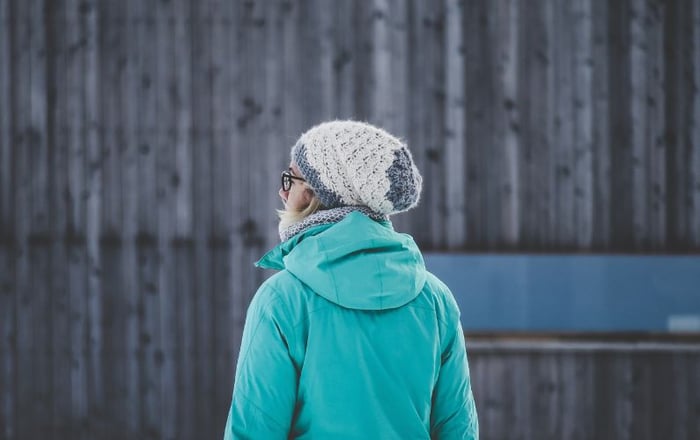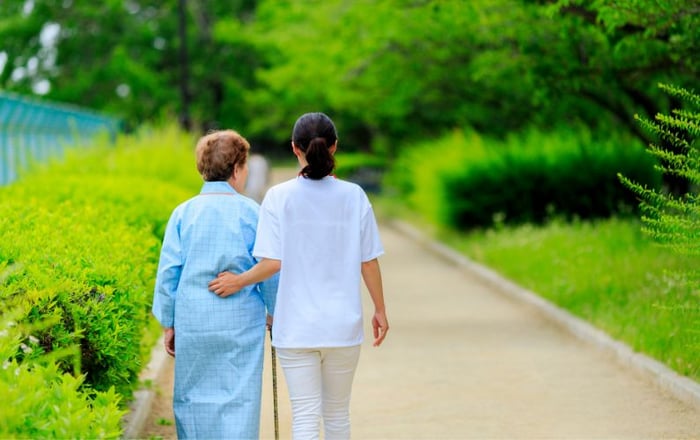Don't let the winter slow you down! Follow these cold weather safety tips to reduce your risk of injury and illness this season.
The winter season is upon us, and with it comes a heightened risk of cold exposure injuries. Cold weather can be unforgiving, and even healthy adults can find themselves at risk for cold weather aches and pains if they're not careful. The risk is even greater if you have existing injuries or mobility concerns.
Don't let yourself become another statistic this winter season! We've put together some cold weather safety tips to help keep you safe and warm.
Keep reading to learn more.
5 Cold Weather Safety Tips to Keep in Mind This Winter

1. Dress warm and wear multiple layers
Winter is a time for cuddling up with a hot cup of cocoa and watching a good movie. But it's also the season when you're more likely to get sick, so taking precautions against illness is important.
Dressing warmly and wearing multiple layers will help keep you healthy during winter. If possible, wear long sleeves and pants, as well as a hat and scarf. If you're going outside, make sure to bundle up in multiple layers of clothing that are warm enough to prevent frostbite or hypothermia.
When dressing for cold weather, it's important to ensure that each layer provides insulation from the elements while still allowing enough ventilation so that moisture won't build up inside your clothing.
2. Prioritize your physical and mental health
When the weather gets cold, it can be easy to get stuck in your house. But staying inside all winter is not only bad for your body but also for your mental health. Here are some of our top cold weather safety tips to keep in mind:
Move your body: There are many ways to move around—even when it's cold outside! You can take a walk or run on a treadmill, go ice skating with friends, or even do some light weightlifting at home.
Take care of yourself mentally: Even if you're stuck inside all day, you can still do things to make sure your mind stays healthy and balanced. Take time every day to read something fun, meditate, or do whatever self-care practices help you feel good about yourself.
3. Wear gloves, socks, and a toque when going outside
Wearing gloves and socks when you go outside in winter is an easy way to keep your hands and feet warm.
If you wear gloves, make sure they fit snugly but not too tight. Loose gloved will cause you to lose heat from your body, making your hands feel even colder than they would otherwise. On the other hand, tight gloves may cut off blood circulation and cause numbness or tingling in your fingers—so be careful!
You should also wear a hat outside during cold weather. A toque is great for keeping your head warm, but any hat will do if it fits well and covers your ears. You can even wear earmuffs if you want extra warmth!

4. Avoid spending too much time outdoors when it is cold
When you're outside in the cold, your body has to work extra hard to stay warm. You can help your body by staying indoors when it's cold out. This will allow you to avoid frostbite, hypothermia, and other health issues resulting from spending too much time outdoors when it's cold.
When you're out in the cold and don't have proper clothing, your body will start losing heat more quickly than normal. If this happens for a long period of time, you can get frostbite or hypothermia, both of which can lead to serious health problems or hospitalization.
5. Drink warm fluids to stay hydrated
You probably know that drinking enough water is important for your health, but it's also important to stay hydrated when the weather gets cold. Warm fluids like herbal teas can help with that.
Warm fluids are great for soothing your throat on a cold winter day. Herbal teas are also packed with vitamins and minerals that can help boost your immune system during winter.

Final Thoughts
Cold weather can be dangerous if you don't take the proper precautions. Thankfully, these cold weather safety tips will help you enjoy your time outside without risking your health.
Finally, be sure to speak with a healthcare professional for additional tips and safety precautions you should take.










